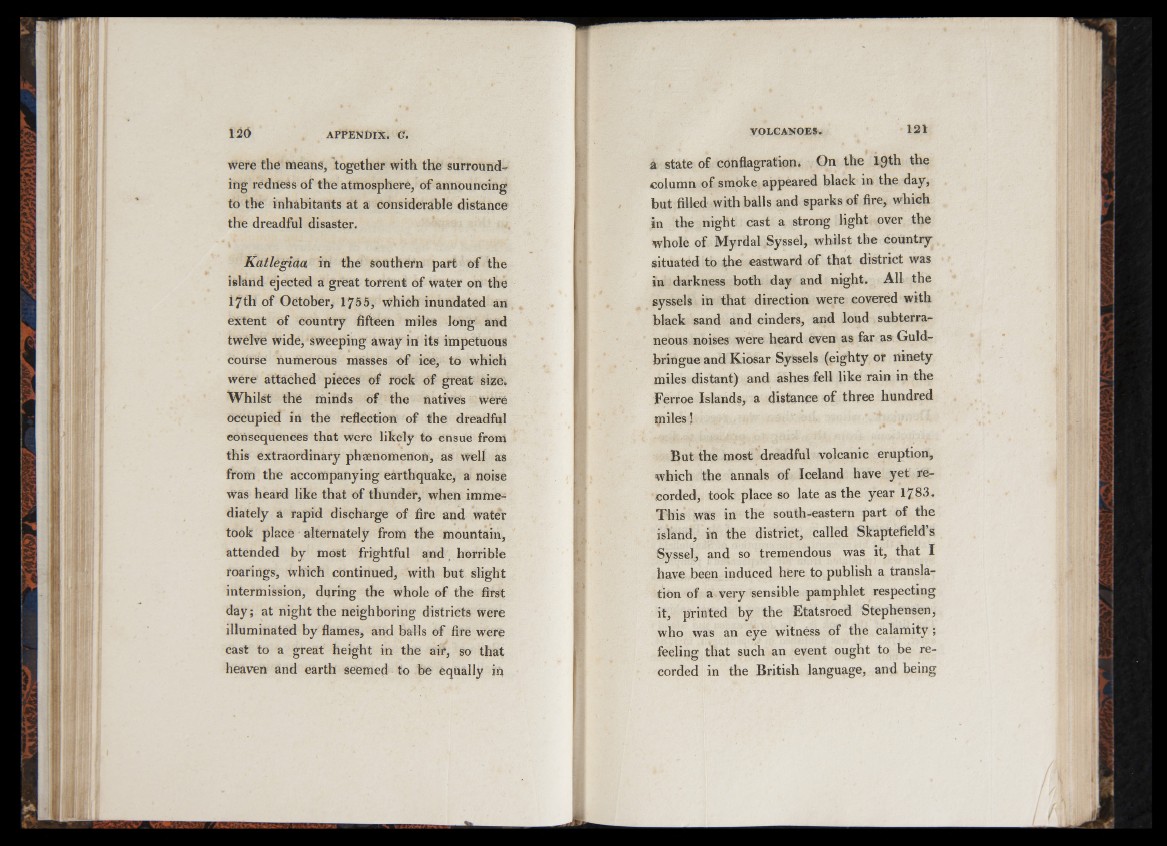
were thé means, together with the surrounds
ing redness of the atmosphere, of announcing
to the inhabitants at a considerable distance
the dreadful disaster.
Katlegiaa in the southern part of the
island ejected a great torrent of water on the
17th of October, 1755, which inundated an
extent of country fifteen miles long and
twelve wide, sweeping away in its impetuous
course numerous masses of ice, to which
were attached pieces of rock of great size.
Whilst the minds of the natives were
occupied in the reflection of the dreadful
consequences that were likely to ensue from
this extraordinary phenomenon, as well as
from the accompanying earthquake, a noise
Was heard like that of thunder, when immediately
a rapid discharge of fire and water
took place alternately from the mountain,
attended by most frightful and horrible
roarings, which continued, with but slight
intermission, during the whole of the first
day; at night the neighboring districts were
illuminated by flames, and balls of fire were
cast to a great height in the air, so that
heaven and earth seemed to be equally ip
a state of conflagration. On the 19th the
column of smoke appeared black in the day,
but filled with balls and sparks of fire, which
in the night cast a strong light over the
whole of Myrdal Syssel, whilst the country
situated to the eastward of that district was
in darkness both day and night. All the
syssels in that direction were covered with
black sand and cinders, and loud subterraneous
noises were heard even as far as Cruld-
bringue and Kiosar Syssels (eighty or ninety
miles distant) and ashes fell like rain in the
Ferroe Islands, a distance of three hundred
iniles)
But the most dreadful volcanic eruption,
which the annals of Iceland have yet recorded,
took place so late as the year 1783.
This was in the south-eastern part of the
island, in the district, called Skaptefield’s
Syssel, and so tremendous was it, that I
have been induced here to publish a translation
of a very sensible pamphlet respecting
it, printed by the Etatsroed Stephensen,
who was an eye witness of the calamity;
feeling that such an event ought to be recorded
in the British language, and being